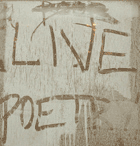From the Archives (16 January 2007) “If you’re dealing with the ugly social issues of our time, why not serve them up as a delicious bonbon?” asks Julien Nitzberg, clever librettist for The Beastly Bombing (or a Terrible Tale of Terrorists Tamed by Tangles of True Love).
I haven’t written a Gilbert-and-Sullivanlike satirical operetta involving skinheads and al Qaeda operatives who sing “I Hate Jews” while plotting to destroy the Brooklyn Bridge recently, but do find myself in the awkward position of trying to define if and when satire can cross that proverbial line, particularly when it comes to children.
See, I watched South Park: Bigger, Longer and Uncut with Bugboy recently—or rather he watched it as I designed then printed then trimmed then numbered my chorus’s concert tickets and dance tickets and raffle tickets while looking up every now and again to watch the antics.
Bugboy and I laughed when the devil, who was unhappy about his relationship, picked up Satan is from Mars, Saddam is from Venus. We laughed when Eric sang “Kyle’s mom’s a bitch, she’s a big fat bitch” (and yes, I do understand fat issues and am aware of just how many girls and women starve themselves on a regular basis in an attempt to conform to our stupid misguided cultural norms).
We laughed when Terrance sang the infamous La La La La . And we laughed when Mr. er Ms. Garrison showed up for class with her balding head and womanly earrings and funkdalagalactic dress, even though this image pokes fun at queers and, unbeknownst to Bugboy, his father.
Then Bugboy uttered the near-constant “Shut up you Jew” line—and, well, herein lies the problem with satire.
Some people—and not just half-grown chill'ren like Bugboy—believe that the quest for laughter gives them permission to use a racist or sexist or heterosexist line that was uttered for satirical emphasis in a different context.
Not funny.
I like to think that most of us recognize the difference between satire and insult, but it’s clear that we need to discuss these nuances with Bugboy.
Free expression keeps thinking people sharp and questioning. Uncensored reflection doused with a healthy disrespect of convention is vital to good art and good democracy and good cogitation too. Satire reveals connections that lectures and so-called PC behavior obfuscate. And we all know that censorship is employed to force acquiescence, obedience.
I appreciate how well South Park’s writers reflect the more ridiculous aspects of our culture. They leave no stone unturned, which is as it should be. That’s why their cultural jabs are so right on.
The writers get their point across succinctly when they do such things as name the lone black student Token. Their depiction of Starvin’ Marvin, the Ethiopian who would rather live on another planet, and the lisping Big Gay Al and his island for misfit queer animals highlight what our policies and assumptions can do to real people.
One of my favorite South Park episodes involves the children turning against the rainforest because they get so many bug bites there.
Then there’s that dangerous smug cloud that stretches from LA to South Park CO after George Clooney gives his awards speech. The cloud grows stronger and more dangerous each time a Prius owner opens his or her mouth too.
(And yeah, we all know that global warming and deforestation are big deals, but these episodes are just too goddamn funny for words.)
Years ago, I helped project the Mapplethorpe exhibit onto an exterior wall of the Corcoran after the museum cancelled the show because I was so pissed that the board bowed to Helms’ censorship pressure. I don’t want to show Mapplethorpe’s arm-fucking photo to my partner’s eleven-year-old though.
Thursday, August 21, 2008
273. SATIRICAL BONBONS AND THE GHOST OF JONATHAN SWIFT
Labels:
censorship,
fatties,
Jonathan Swift,
Mapplethorpe,
satire,
South Park,
The Beastly Bombing
Subscribe to:
Post Comments (Atom)


No comments:
Post a Comment